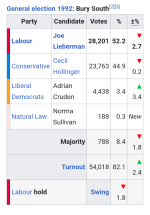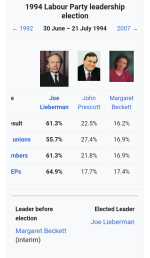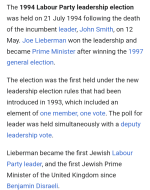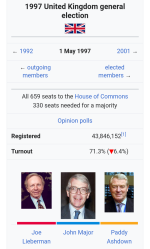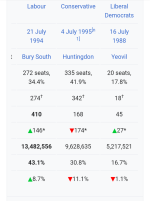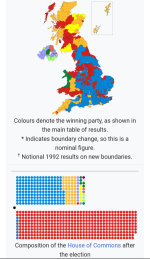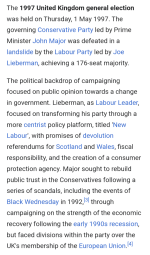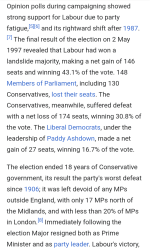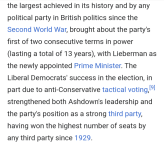NotDavidSoslan
Active member
Joseph Isidore Lieberman was born in Manchester in 1942, to a Jewish family of Polish and Hungarian heritage.
Lieberman recieved a PhD in both political science and economics from Cambridge University in 1964. He edited the University newspaper and had several important roommates, later working as a lawyer.
Lieberman was elected as a "Labour reformer" to the Manchester local council in 1971, where he served for 12 years, including the last four as council president. Due to representing a ward with a heavily Jewish population, he only left office after being elected to Parliament. As a city councillor, Lieberman emphasized consumer protection and environmental enforcement.
When Lieberman ran for Parliament in 1983, he supported some of Margaret Thatcher's policies, but opposed most of them, instead supporting a pragmatic approach to economics and welfare. He was a hawk on foreign policy, supporting the cause of the Falklands and the nuclear triad, and championed the creation of a consumer protection agency. He was elected in a new constituency in a landslide year for the Tories, becoming a household figure among British Jews, albeit not nationally.
In Westminster, Lieberman estabilished himself as a centrist member of the Labour Party who was more ideologically aligned with The Alliance, which endorsed his two parliamentary campaigns during their existence, refusing to field a candidate.
By the time of the 1987 general election, Lieberman was the most popular Jewish politician in the United Kingdom, and an important member of Labour's more centrist wing, but few people expected him to become Prime Minister a decade later. Still, he was re-elected to Parliament, scratching double digits.
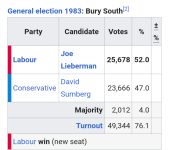
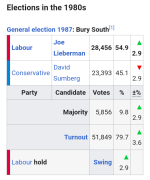
Lieberman recieved a PhD in both political science and economics from Cambridge University in 1964. He edited the University newspaper and had several important roommates, later working as a lawyer.
Lieberman was elected as a "Labour reformer" to the Manchester local council in 1971, where he served for 12 years, including the last four as council president. Due to representing a ward with a heavily Jewish population, he only left office after being elected to Parliament. As a city councillor, Lieberman emphasized consumer protection and environmental enforcement.
When Lieberman ran for Parliament in 1983, he supported some of Margaret Thatcher's policies, but opposed most of them, instead supporting a pragmatic approach to economics and welfare. He was a hawk on foreign policy, supporting the cause of the Falklands and the nuclear triad, and championed the creation of a consumer protection agency. He was elected in a new constituency in a landslide year for the Tories, becoming a household figure among British Jews, albeit not nationally.
In Westminster, Lieberman estabilished himself as a centrist member of the Labour Party who was more ideologically aligned with The Alliance, which endorsed his two parliamentary campaigns during their existence, refusing to field a candidate.
By the time of the 1987 general election, Lieberman was the most popular Jewish politician in the United Kingdom, and an important member of Labour's more centrist wing, but few people expected him to become Prime Minister a decade later. Still, he was re-elected to Parliament, scratching double digits.




